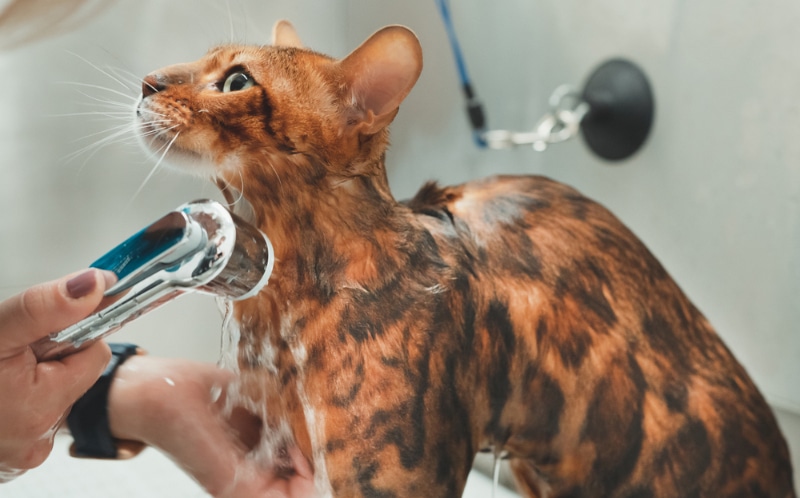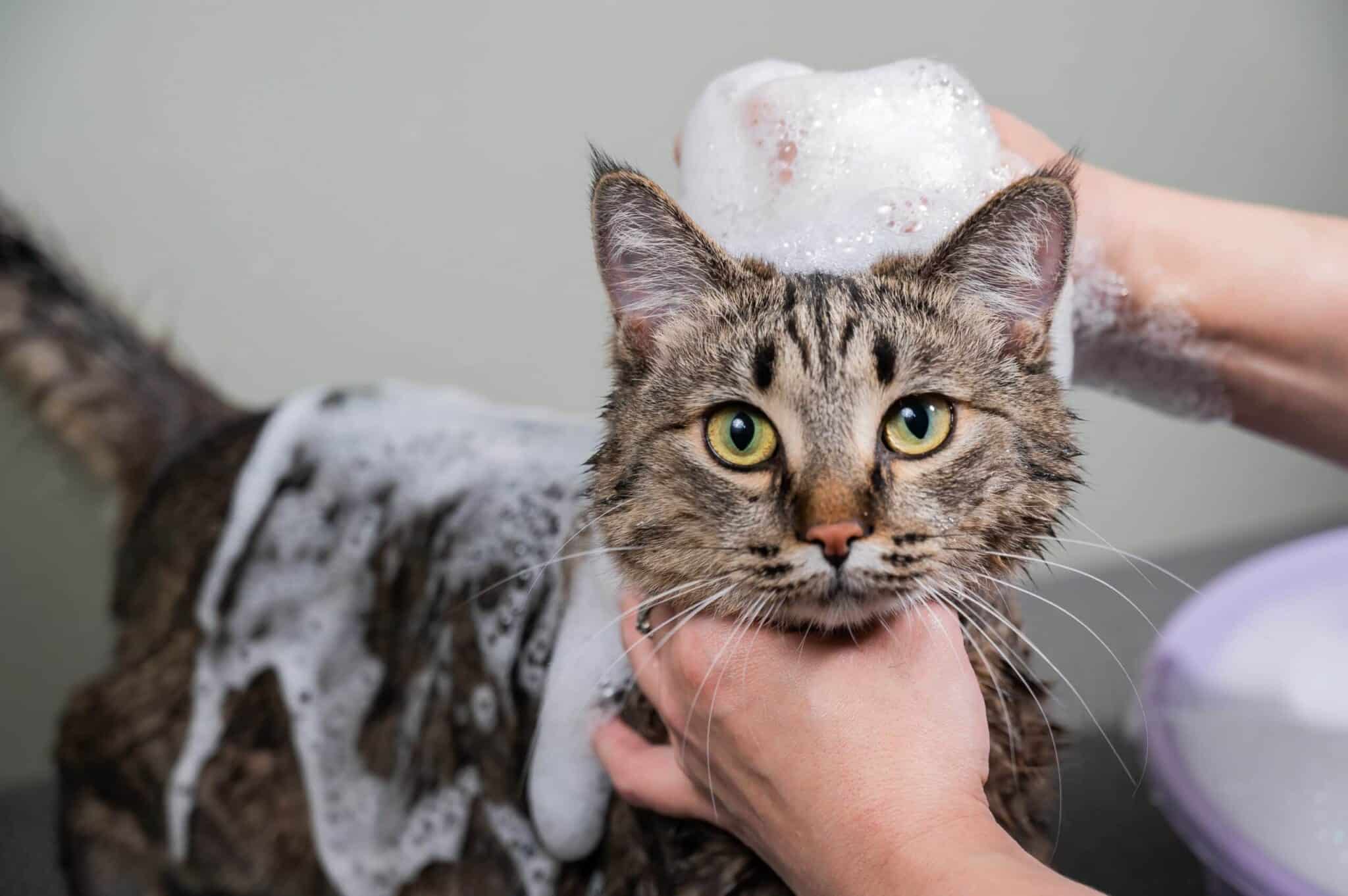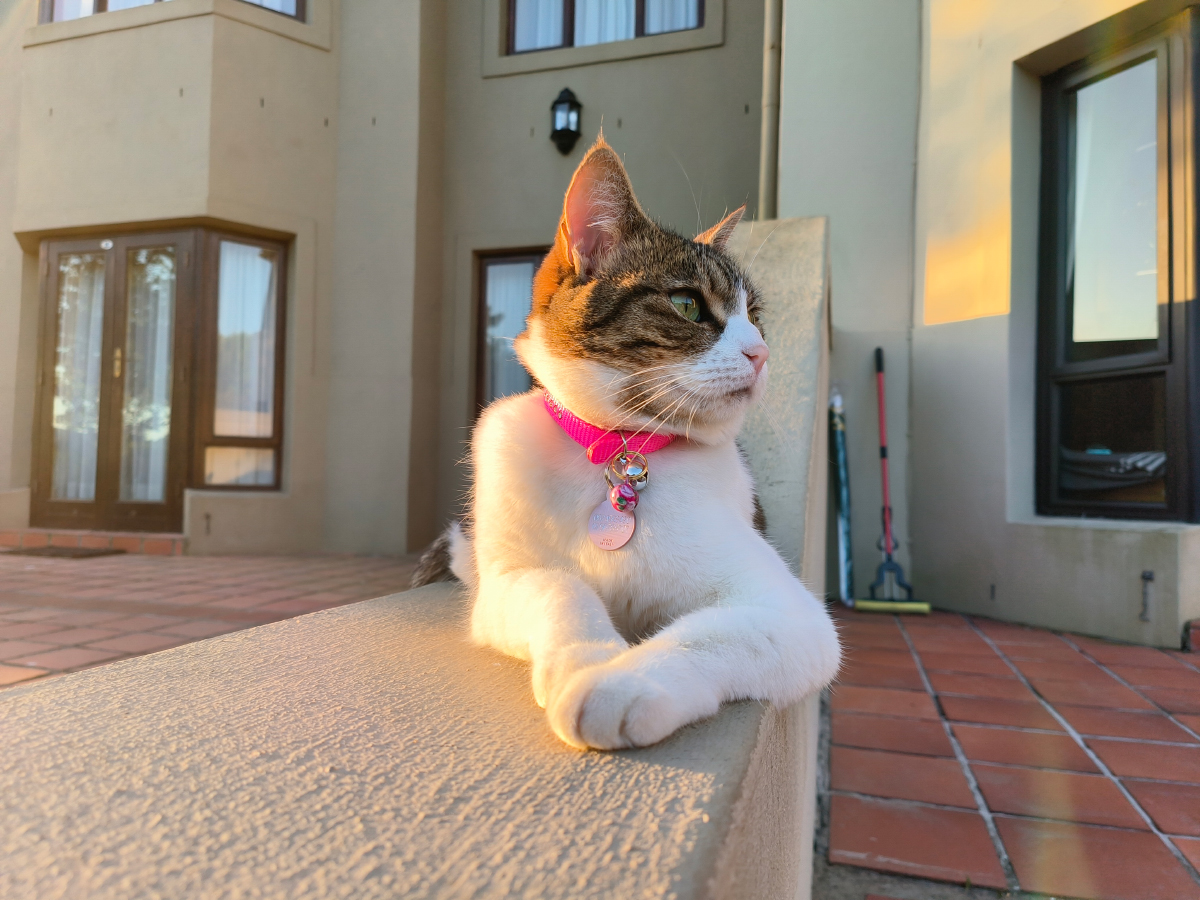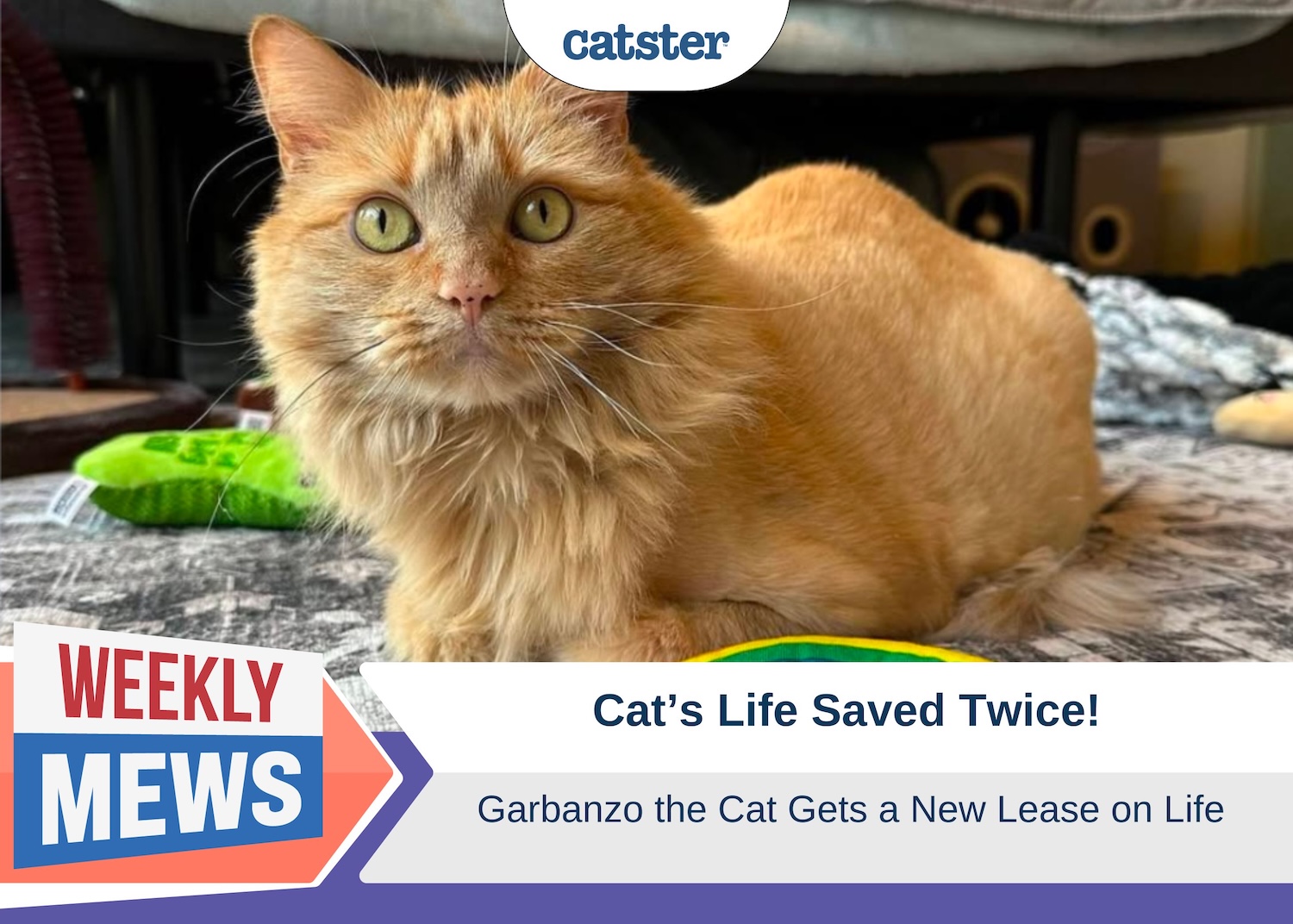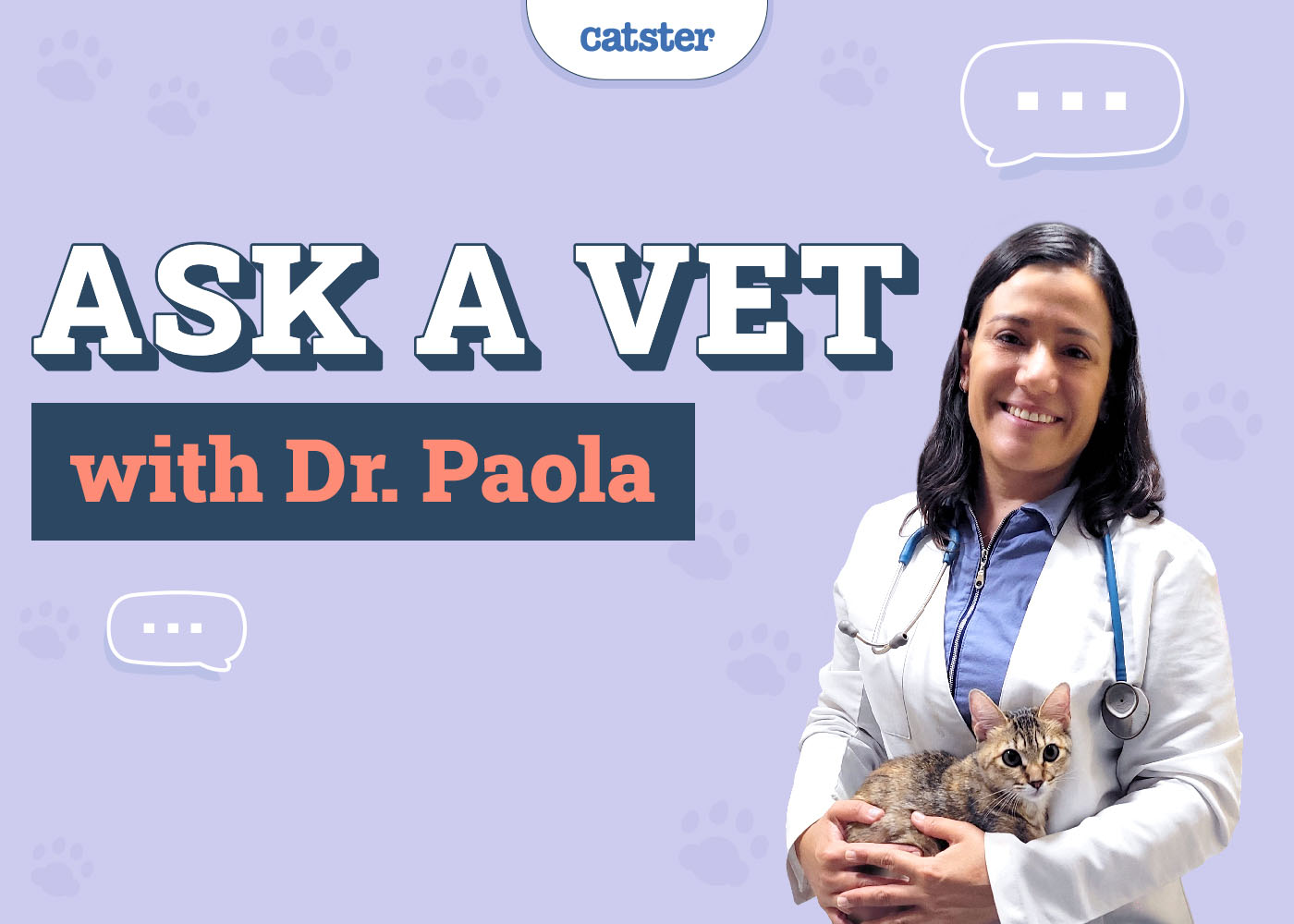Click to Skip Ahead
Tiny kittens develop and change so quickly that you might be wondering at exactly what age your roly-poly kitten turns into a cat. In short, kittens are generally accepted to be classified as cats once they pass their first birthday.
Let’s take a look at the stages that your kitten will go through as they head into adulthood.

The Stages of Kitten Growth
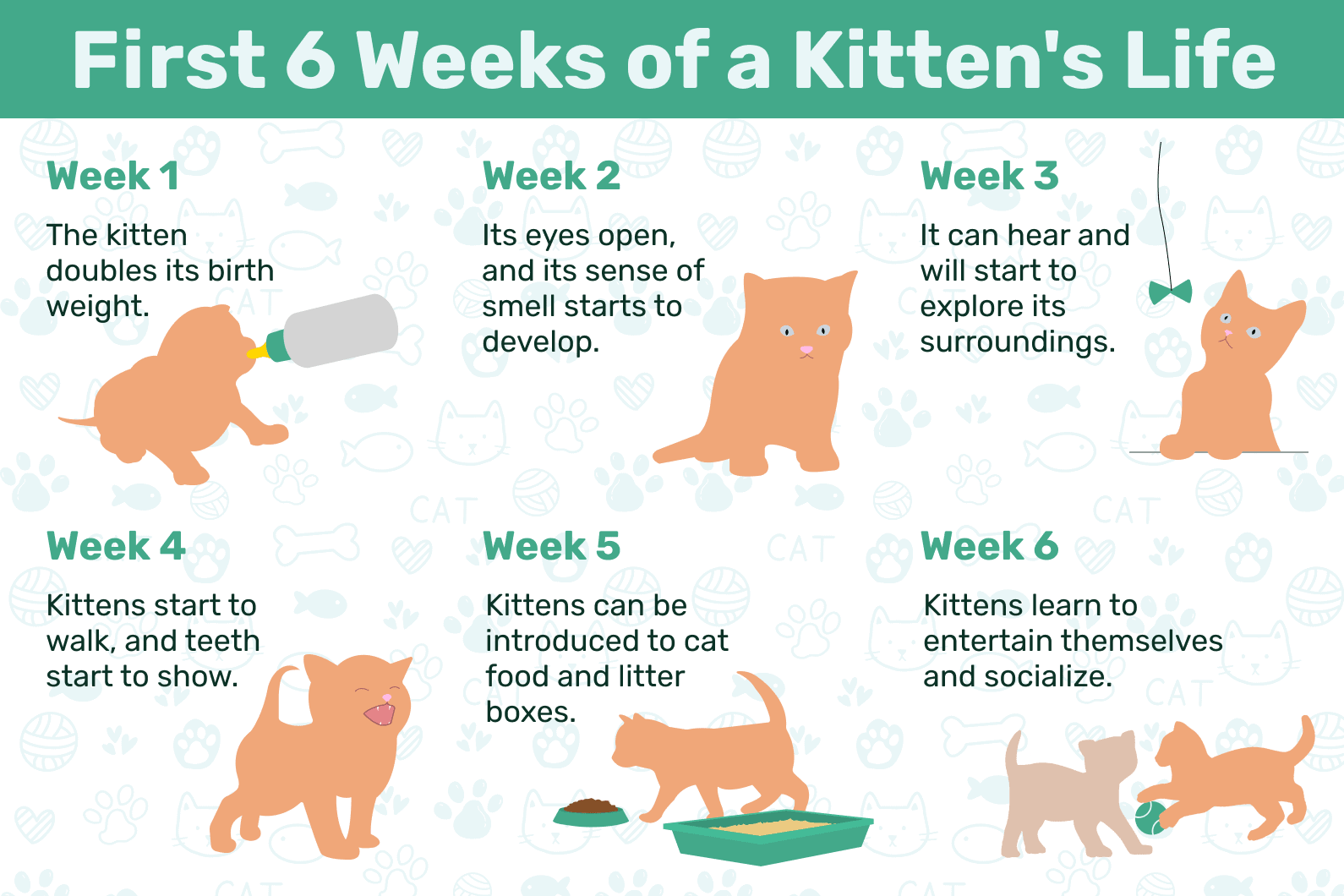
1 Week to 3 Weeks Old
At 1 week of age, kittens will be spending most of their time sleeping and eating. Kittens will start to open their eyes around 2 weeks of age, and their ear canals will open at roughly 3 weeks. Kittens of this age need help peeing and pooping, and their mother cats usually help them with this after they’ve eaten.
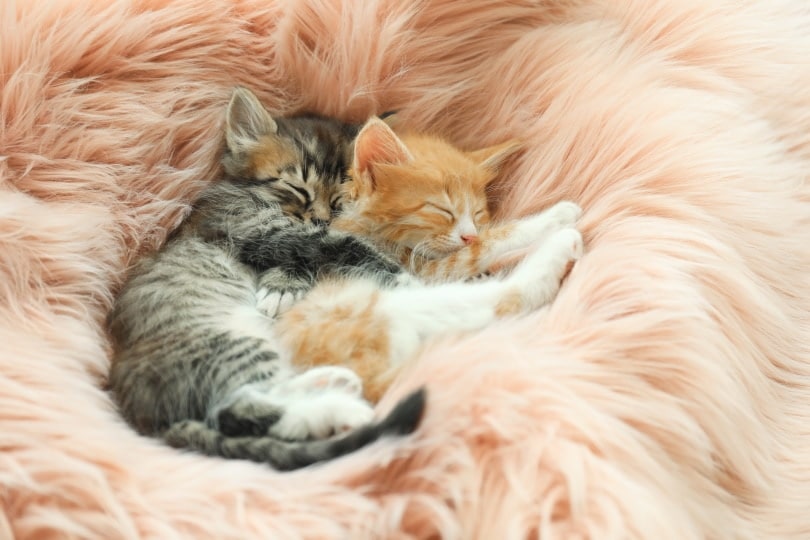
1 Month Old
By now, a kitten can pee and poop on their own, and their teeth are starting to break through. Kittens at this age will be more mobile. They’ll be spending more time exploring their surroundings and starting to build up muscle. At a month to 5 weeks old, most kittens will start being weaned onto a wet kitten food.
2–6 Months Old
Kittens can start to be vaccinated at around 8–12 weeks. At this age, they can also leave their mother cat and travel to their new homes. At this age, kittens are active and need to be eating an energy-dense diet as their bones and muscles develop. Kittens expend three times more energy than adult cats, so they will need at least five meals a day.
Between 4 and 6 months old, kittens can be spayed or neutered. This reduces the risks of them developing certain health issues later in life and prevents certain hormone-related behaviors, like urine spraying and excessive vocalization.
6 Months Old & Up
By 6 months old, kittens are looking more like a mini adult cat. At 7 months, most kittens will have their full set of adult teeth.
- Related Read: How to Take Care of Your New Kitten (8 Must-Know Tips)
12 Months Old
Happy birthday! By the time your kitten is a year old, they’re considered an adult cat.
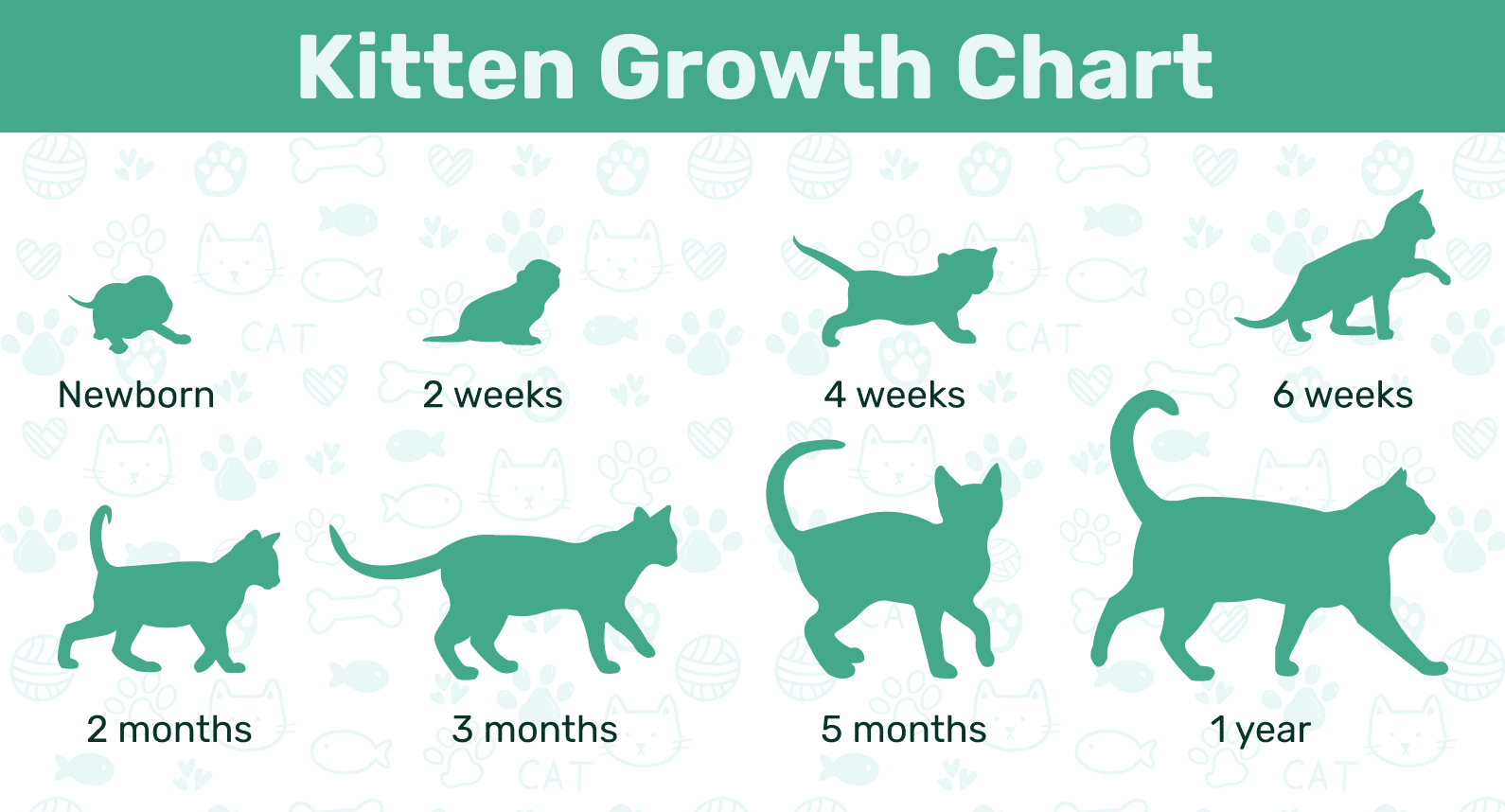

Switching to Adult Cat Food
Once your kitten hits their first birthday, you can begin thinking about transitioning them to an adult cat food rather than the kitten food that they’ve been eating up to this point. It’s a good idea to speak to your vet about this process.
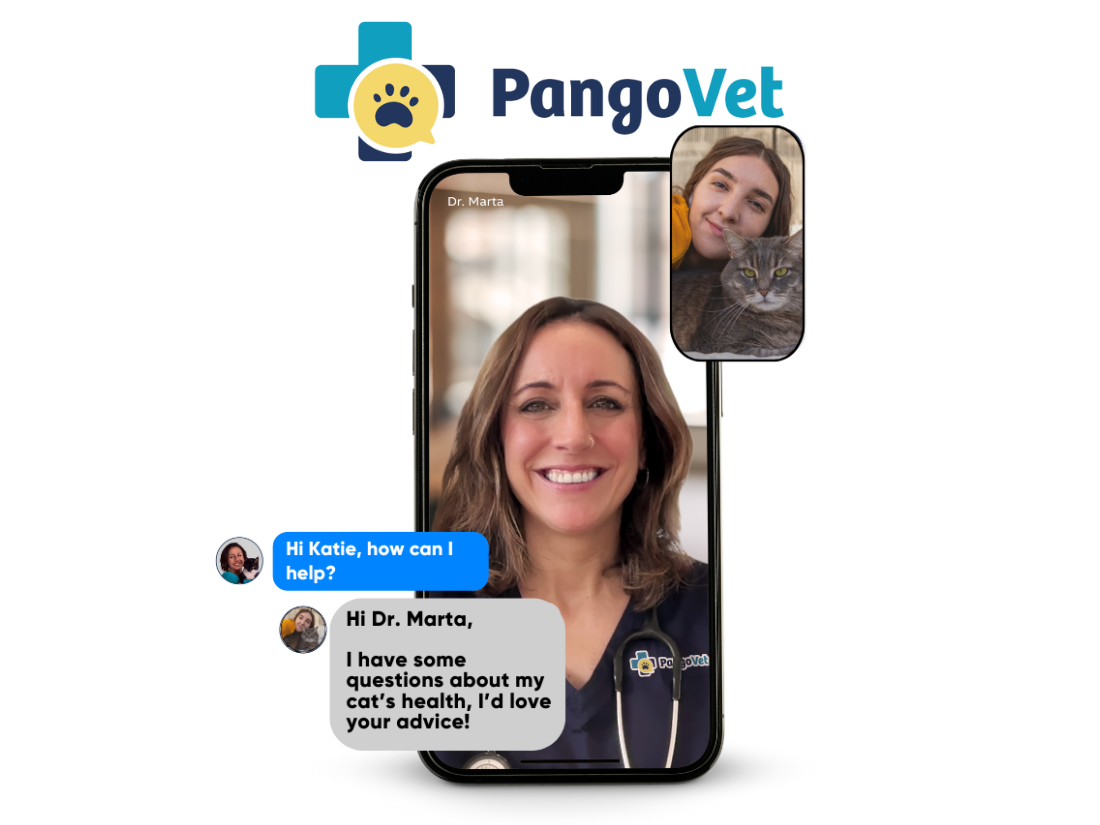
If you need to speak with a vet but can’t get to one, head over to PangoVet. It’s an online service where you can talk to a vet online and get the personalized advice you need for your pet — all at an affordable price!
Make sure any food that you choose is approved by the Association of American Food Control Officials for the maintenance life stage of cats. Kitten food should only be used for the growth and development phase. Each formula contains balanced nutrition for that particular life stage and shouldn’t be used interchangeably.

Conclusion
Watching your kitten grow into a healthy adult cat is a rewarding experience. Making sure they have access to the correct food and veterinary care is essential to give your kitten the best start in life. Of course, plenty of cuddles and playtime with their new owners is also obligatory!
See Also:
- Why Does My Cat Lick My Ear? 3 Possibilities
- How to Determine a Kitten’s Age
- How To Stop Cats From Fighting: 5 Tips & Tricks
Featured Image By: Liliya Kulianionak, Shutterstock


